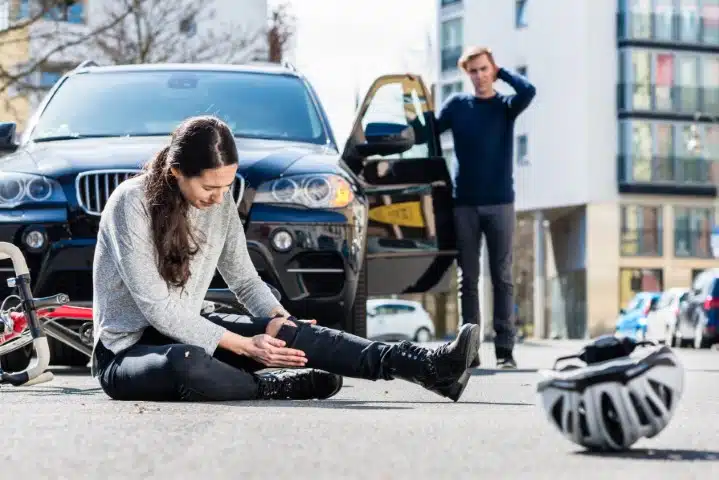
Don’t Wait—Seek Help Today!
Car accidents can lead to a wide range of injuries, varying from minor bruises to life-altering conditions. Understanding the types of injuries commonly associated with car accidents is crucial for victims not only to seek proper medical care but also to obtain the necessary legal assistance from experienced car accident lawyers. Below are the most frequent injuries sustained in car accidents:
1. Whiplash
One of the most common injuries in rear-end collisions, whiplash occurs when the neck is forcibly jerked back and forth. This sudden movement can strain or damage the muscles, ligaments, and tendons in the neck.
Symptoms:
- Neck pain or stiffness
- Headaches
- Reduced range of motion
2. Traumatic Brain Injuries (TBIs)
Traumatic brain injuries result from a blow or jolt to the head during a crash. Even minor head injuries should be evaluated as they can have long-term effects.
Symptoms:
- Dizziness or confusion
- Memory loss
- Severe headaches
- Nausea or vomiting
3. Spinal Cord Injuries
Injuries to the spinal cord can result in partial or complete paralysis. The severity depends on the location and extent of the damage.
Symptoms:
- Loss of sensation
- Weakness or paralysis
- Difficulty breathing or maintaining balance
4. Fractures and Broken Bones
The impact of a collision can break bones in various parts of the body, including arms, legs, ribs, and the pelvis. The severity ranges from hairline fractures to compound fractures requiring surgery.
Symptoms:
- Severe pain at the injury site
- Swelling and bruising
- Inability to move the affected area
5. Soft Tissue Injuries
These involve damage to muscles, ligaments, and tendons. Common examples include sprains, strains, and contusions (bruises).
Symptoms:
- Swelling and tenderness
- Limited movement
- Persistent pain
6. Internal Injuries
Internal injuries may not be immediately visible but are extremely serious. Collisions can cause internal bleeding or damage to organs like the liver, spleen, or lungs.
Symptoms:
- Abdominal pain or swelling
- Dizziness or fainting
- Blood in urine or stool
7. Cuts and Lacerations
Shattered glass, loose objects, or sharp edges in the car can cause cuts or lacerations. While some injuries are superficial, others may require stitches or result in scarring.
Symptoms:
- Visible wounds
- Bleeding
- Risk of infection
8. Burns
In cases where vehicles catch fire or airbags deploy, burns may occur. These can range from mild first-degree burns to severe third-degree burns requiring extensive treatment.
Symptoms:
- Redness or blistering
- Severe pain
- Charred or blackened skin in severe cases
9. Psychological Injuries
Beyond physical injuries, car accidents often cause emotional distress, such as post-traumatic stress disorder (PTSD), anxiety, or depression.
Symptoms:
- Flashbacks or nightmares
- Difficulty sleeping
- Emotional numbness or irritability
10. Fatal Injuries
In severe cases, car accidents result in fatal injuries. Families of victims may pursue wrongful death claims to seek compensation for their loss.
Take Action Now—Your Health Matters!
If you’ve been injured in a car accident, it’s crucial to:
- Seek immediate medical attention, even if injuries seem minor.
- Document all injuries and medical treatments.
- Consult a personal injury attorney to explore your legal options.
Contact a Car Accident Lawyer Today!
Your health and legal rights are paramount. Reach out to a dedicated motor vehicle accident lawyer today to ensure you receive the support and compensation you need during this challenging time.

